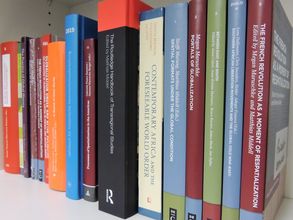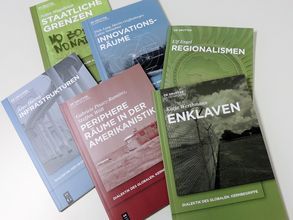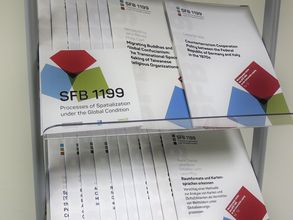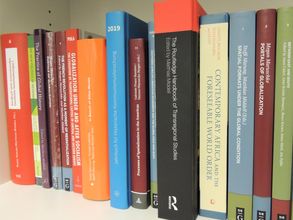RA 1 examines how the entanglement and decoupling of actors, institutions and spatial phenomena change(ed) under conditions of globalisation, how these processes produce spatial formats and integrate them into spatial orders, and thus how recent global history can be understood as an ongoing dialectic of de- and reterritorialisation.
The Research Area's case studies cover both short-term shocks to geopolitical orders and long-term stabilisations of fundamental power asymmetries since the 18th century and reflect processes of change in and between world regions.
At the same time, RA 1 observes the crisis of the international principle of multilateralism in the second half of the 20th century, which is systematically undermined by unilateral great power strategies and political populism. The formation of transregional alliances between states, regions, networks, companies or communities is conceptualised as political transregionalism.
Special attention is paid to the investigation of spatial semantics that initiate, steer and channel collective perceptions and thus make them intersubjectively negotiable. They are analysed comparatively across regions and thus also across languages and cultures using digital humanities tools and provide indications of the historically specific spatial literacy, i.e. the ability to adequately understand contradictory phenomena such as demarcations, enclosures and interconnections and to find practical answers to them.
Research Networks and Projects of Research Area 1
In the Collaborative Research Centre (SFB) 1199, researchers from the social sciences and humanities are investigating in 16 sub-projects how spatialisation processes change under conditions of globalisation and how actors create new spatial formats under these conditions, modify existing ones and integrate them into spatial orders. The CRC has been funded by the German Research Foundation since 2016 and is currently in its second funding phase.
Globalisation processes affect the most diverse areas of life. In Eastern Europe, the perspectives "from within" and "from without" form a field of tension to which the Leibniz ScienceCampus "Eastern Europe - Global Area (EEGA)" is dedicated. In cooperation with research institutions in Eastern Europe, processes such as migration and mobility, economic interdependencies, political integration, as well as cultural and intellectual perspectives and identities are examined.
Lead by: Prof. Dr. Sebastian Lentz, Prof. Dr. Matthias Middell
Duration: 01/2021–09/2024
Funding Organisation: Leibniz Association
Total funding volume: 173.600 EUR
Since April 2022, a four-year research project led by Prof Dr Ulf Engel has been investigating African non-military intervention practices (ANCIP). Project partners are Dr Antonia Witt, research associate at the Leibniz Institute Hessian Foundation for Peace and Conflict Research (HSFK) and Prof Dr Christof Hartmann, Director of the Institute for Development and Peace (INEF) at the University of Duisburg-Essen. The competence network combines empirical basic research with theory development and strategic policy advice. It aims to strengthen expertise on non-military actors that are relevant to peace and security policy on the African continent. ANCIP is funded by the BMBF.
Lead by: Prof. Dr. Ulf Engel
Duration: 04/2022–03/2026
Funding organisation: BMBF (Federal Ministry of Education and Research
PRIME | Narratives of conflict and reconciliation in Ethiopian-Eritrean relations (PRIME)
The aim of the project is to analyse the discursive practices with which the Ethiopian and Eritrean governments have given new meaning to their relations and the deadlocked political situation after the war. The research project aims to show how analysing the politics of representation can contribute to a better understanding of international political developments in the Horn of Africa.
Lead by: Prof. Dr. Ulf Engel
Duration: 07/2019–01/2022
Funding Organisation: DAAD (German Academic Exchange Service)
Total funding volume: 130.700 EUR




